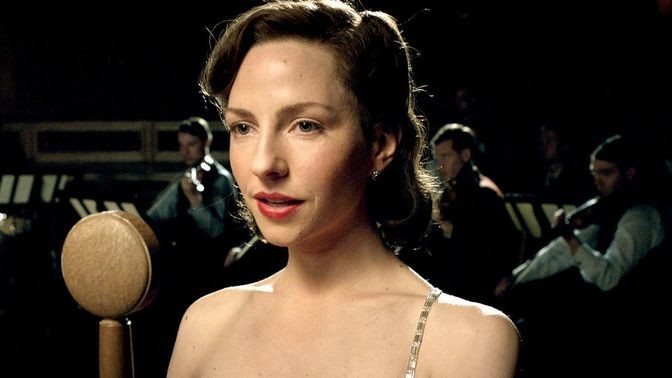| Titel: | Unsere Mütter, Unsere Väter (Generation War) |
| Director: | Philipp Kadelbach |
| Cast: | Volker Bruch, Tom Schilling, Katharina Schüttler, Miriam Stein en Ludwig Trepte |
| Released: | 2013 |
| Playing time: | 275 minutes |
| Description: | Five cheerful faces on a black-and-white picture. Three boys and two girls in de prime of their lives. It's in the summer of 1941 and the carefree quintet meet in Berlin for a farewell party. Two of the boys, Wilhelm and his brother Friedhelm are called up for service in the Wehrmacht on the Eastern Front. Also one of the girls, Charlotte, will leave soon for the battlefields in the Soviet Union to serve her country as a nurse. The other two in the picture, Greta and Viktor, remain in Germany. They form a couple. He is of Jewish origin and thus the target of discrimination by the National Socialist government, she is working on a career as a singer. At their farewell meeting, the five promise to see each other again: the Russians will be defeated by the unbeatable German army before Christmas. The eventual outcome would be very different. It would never be again as in the picture. The German three-part miniseries 'Unsere Mütter, Unsere Väter' is about how the young lives of the five main characters are at odds because of the war. The brothers experience on the Eastern Front that the time of rapid victories is soon over and that war crimes are inextricably linked to the German army's struggle. German soldiers who are brought in bleeding and screaming into the military field hospital also confront Charlotte with the harsh reality of warfare. On the home front, Viktor, who is guilty of "racial scandal" because of his relationship with Greta, decides to flee the country for fear of what awaits him as a Jew. Greta tries to help him by obtaining exit papers from a high Gestapo officer with whom she has entered into a relationship in favour of her singing career. The five of them make their own choices with the challenges they face, which sometimes turn out to be fatal, either for themselves or for others. The aim of the makers of this miniseries is to show the present Germans how their parents or grandparents, without knowing beforehand what was in store for them, got involved with the crimes of a regime that nowadays is considered the most malicious ever. The protagonists are not fanatic Nazi villains and no born hero's either. They are for everyone recognizable persons: young, carefree people occupied with love and friendship and for whom global politics play no role. As a dutiful lieutenant in the German army, Wilhelm executes the orders of his superiors, even when that means to put a bullet into the head of a Sovjet commissioner. And when Charlotte discovers that one of the nurses in the field hospital is a Jewess, she feels obliged to report this to her superiors, even though the woman has helped her so well before. Without becoming moralistic, the miniseries turns on to reflect on the decisions that Wilhelm, Charlotte and the others take and the personal limits they exceed. What would we have done if we had been in their shoes. The complicity of ordinary people to the crimes of Nazi-Germany is the main theme of "Unsere Mütter, Unsere Väter". But apart from that, it is also a stirring anti-war film. Impressive scenes of the battlefield show the fears, the losses and the hardships associated with every war. The miniseries show that at the front a hardening occurs even with the gentlest types, which in reality certainly caused excesses on the eastern front. Not only Germans are the bad boys in this production: it also shows how soldiers of the Red Army shoot wounded Germans in their hospital beds and how Polish partisans are hostile towards Jews. Not even the Americans are the heroes: At the end of the war an American officer works together for pragmatic reasons with a Gestapo-officer with blood on his hands. War brings the vilest of people on the surface. the filmmakers know how to convince us of that. We do not need this miniseries to arrive at that judgment, but precisely because this fact is, for once not highlighted from the moral perspective of the victors the message is extra convincing. But apart from the fact that the makers of "Unsere Mütter, Unsere Väter" have succeeded in making the viewer think, their work is also made compelling and beautiful. The various storylines, which sometimes cross each other, keep the tension in place and ensure sufficient variety. The ambiance of the locations where the filming took place, gives a credible impression of the era. The talented young actors also contribute to the whole. The miniseries has already been called the German "Band of Brothers". When you consider the compelling line of the story, then the comparison is certainly not unjustified. The message however is more oppressive: whereas the American miniseries is primarily a tribute to American heroes, this German production shows that good and evil and heroes and villains in war are not as easy to distinguish from each other as we are often inclined to think. |
| Rating: |     Very good Very good |
Information
- Translated by:
- Cor Korpel
- Article by:
- Kevin Prenger
- Published on:
- 07-01-2018
- Last edit on:
- 09-06-2018
Images
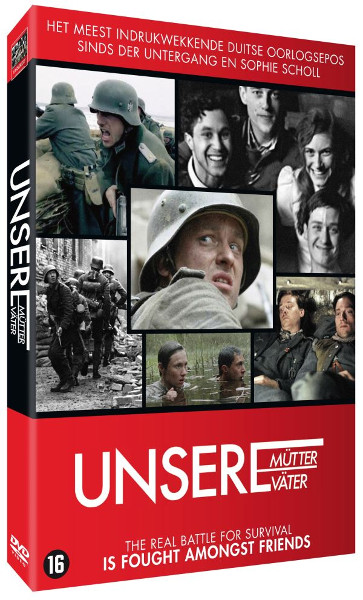
Images
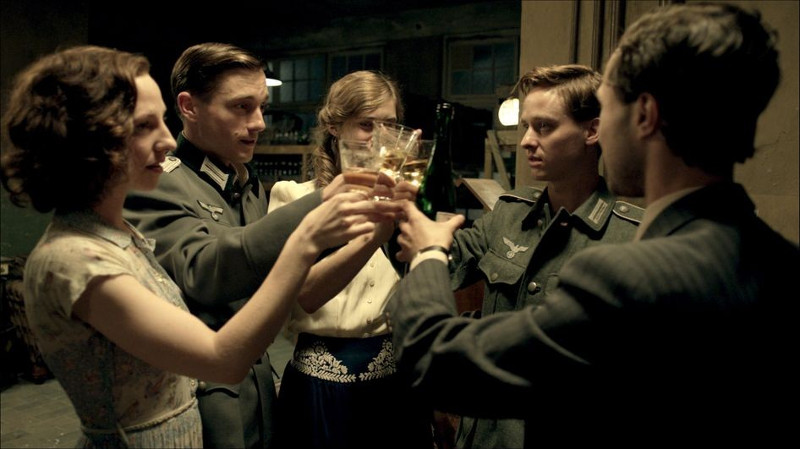
Images
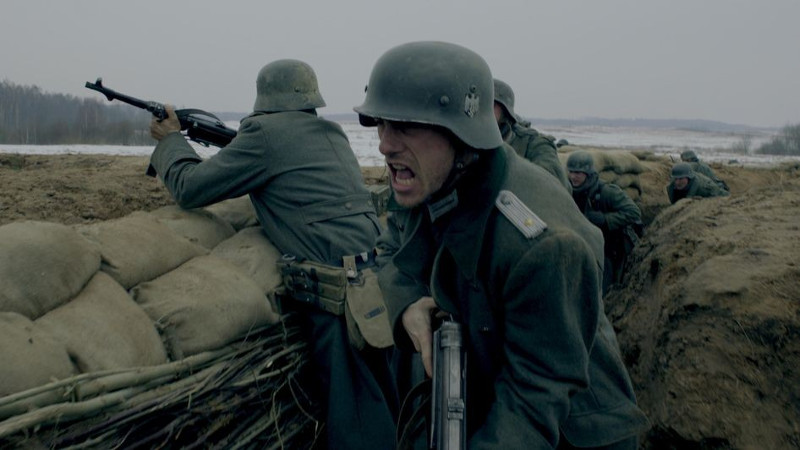
Images
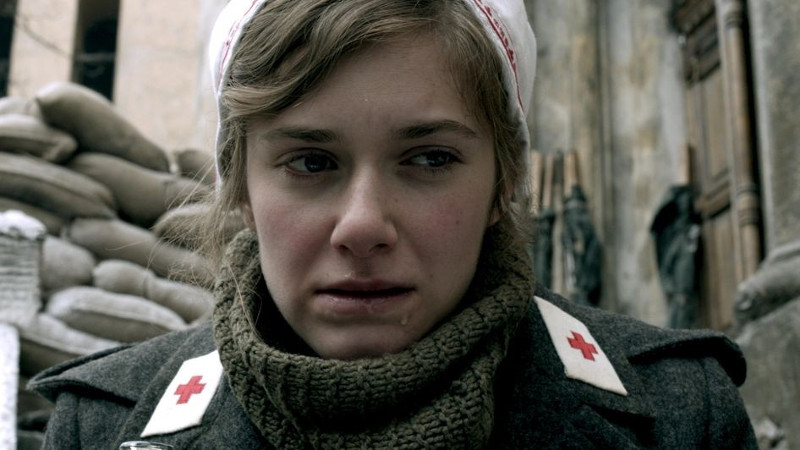
Images
